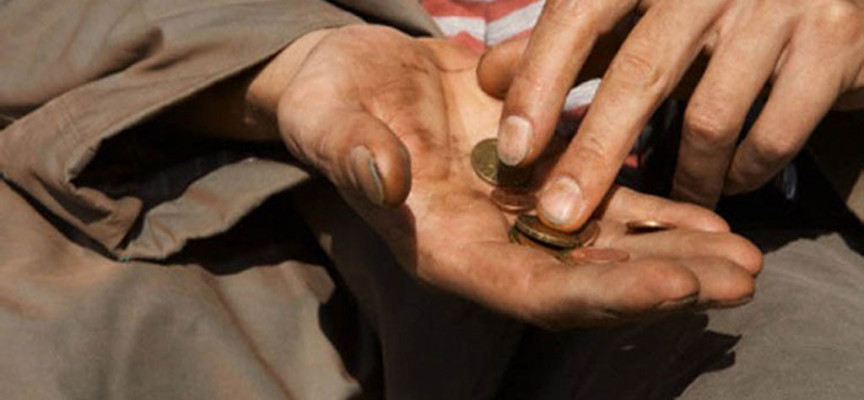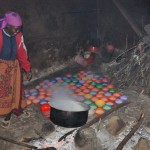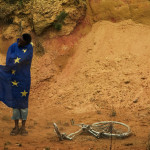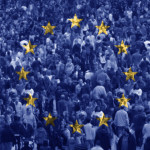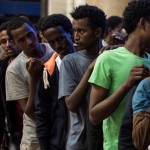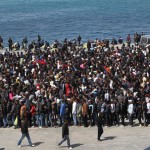“It is now recognized that, for the first time, the world has the technology and resources to eradicate extreme poverty in our lifetime.” This is why “there is no excuse for us”.
These are the resolute words used by Andris Piebalgs, European Commissioner for Development, in early June and only few months away from the renewal of the European Commission, to express the European commitment to carry on the negotiations for the establishment of the Sustainable Development Goals (SDGs). These will be a new series of international commitments that will represent the natural continuation of the Millennium Development Goals (MDGs) launched by the United Nations in 2000 and that will be reaching their conclusion in 2015.
A debate that cannot leave Europe indifferent, as Europe alone is responsible for more than half of the aids earmarked for development by the governments all over the world. During 2013, despite the difficult economic trends, the EU Institutions and the 28 member States have assigned 56,5 billion euros to developing countries, 1,2 billion euros more than in 2012.
A figure which is about 0,43% of the European GDP, but which is still far from the 0,7% threshold that the rich countries had committed to earmark for the Public Aids for Development by the end of the MDGs.
Among the countries that have already achieved the goal are Sweden (1% of the GDP), Denmark (0,84%), Luxemburg (0,96%) and the United Kingdom (0,70%). A bit behind them we find The Netherlands (0,61%) and Finland (0,55%), followed by Belgium (0,44%), France (0,48%), Austria (0,43%) and Germany (0,37%). Far behind are the countries of Southern and Eastern Europe such as Italy and Spain (stuck to 0,17%) or Poland and Hungary (0,10%).
But looking at what has happened in the latest years in Asia, Africa and Latin America we can understand how the challenge of a cooperation for development cannot be reduced to a mere monetary issue. Europe itself has been long working to try and improve the effectiveness of the aids, making the whole system more transparent.
Well aware that many great challenges awaiting Europe and the world, such as climate changes and migrations, as well as commercial balances, require efforts and a communion among countries and peoples which are much greater than a simple percentage of the GDP. Because, as recently stated by Dhananjayan Sriskandarajah, secretary-general of Civicus, the World Alliance for Citizen Participation, “it’s not just a question of money”. “I wish – continued Sriskandarajah – that by 2030 the primary goal of cooperation would be to fight inequalities, as well as today it was to put an end to extreme poverty”.
A commitment to “say no to an economy of exclusion and inequality” that Pope Francis has reaffirmed in his Apostolic Exhortation Evangelii Gaudium. “While the earnings of a minority are growing exponentially, – writes the Pope – so too is the gap separating the majority from the prosperity enjoyed by those happy few. This imbalance is the result of ideologies which defend the absolute autonomy of the marketplace and financial speculation.” So the Pope encourages us to ponder the words of one of the sages of antiquity, Saint John Chrysostom: “Not to share one’s wealth with the poor is to steal from them and to take away their livelihood. It is not our own goods which we hold, but theirs.”
These are words that show a road to follow. Because in order to eradicate extreme poverty, technologies and resources are not enough, we need rules against injustice.
“È ormai risaputo che, per la prima volta, il mondo possiede le tecnologie e le risorse per sradicare la povertà estrema nell’arco di una vita”. Per questo “non abbiamo scuse”.
Sono decise le parole con cui il Commissario europeo allo sviluppo Andris Piebalgs ha espresso, all’inizio di giugno e a pochi mesi dal rinnovo della Commissione Ue, l’impegno europeo nel proseguire i negoziati per la definizione degli Obiettivi per uno sviluppo sostenibile (Sustainable Development Goals – SDGs): una nuova serie d’impegni internazionali che rappresenterà la naturale prosecuzione degli Obiettivi di sviluppo del millennio (MDGs) lanciati dalle Nazioni Unite nel 2000 e che si avviano alla conclusione nel 2015.
Un dibattito che non può lasciare indifferente l’Europa, da sola responsabile di oltre la metà degli aiuti destinati allo sviluppo dai governi di tutto il mondo. Nel corso del 2013, nonostante la difficile congiuntura economica, le istituzioni comunitarie e i 28 Stati membri hanno destinato ai Paesi in via di sviluppo 56,5 miliardi di euro, con un aumento di 1,2 miliardi rispetto al 2012.
Una cifra, pari a circa lo 0,43% del Pil europeo, ancora però lontana da quella soglia dello 0,7% che i Paesi ricchi si erano impegnati a destinare agli aiuti pubblici allo sviluppo entro la scadenza dei MDGs.
Tra i Paesi già arrivati al traguardo ci sono Svezia (1% del PIL), Danimarca (0,84%), Lussemburgo (0,96%) e Regno Unito (0,70%). Poco più indietro troviamo Olanda (0,61%) e Finlandia (0,55%), seguiti da Belgio (0,44%), Francia (0,48%), Austria (0,43%) e Germania (0,37%). Molto più indietro i Paesi dell’Europa meridionale e orientale come l’Italia e la Spagna (ferme allo 0,17%) o Polonia e Ungheria (0,10%).
Ma guardando a quanto avvenuto negli ultimi anni in Asia, Africa e America Latina si comprende come la sfida della cooperazione allo sviluppo non possa essere ridotta a una mera questione monetaria. Da tempo la stessa Europa sta lavorando per cercare di migliorare l’efficacia degli aiuti rendendo l’intero sistema più trasparente.
Consapevoli di come molte delle grandi sfide che attendono l’Europa e il mondo – dai cambiamenti climatici alle migrazioni, passando per gli equilibri commerciali – richiedano uno sforzo e una condivisione tra Paesi e popoli ben superiore a una semplice percentuale del Pil. Perché, come ha recentemente dichiarato Dhananjayan Sriskandarajah, segretario generale di Civicus, Alleanza mondiale per la partecipazione dei cittadini, “non è solo una questione di soldi”. “Mi auguro – ha proseguito Sriskandarajah – che per il 2030 l’obiettivo prioritario della cooperazione sia combattere le disuguaglianze, così come oggi è stato quello di porre fine alla povertà estrema”.
Un impegno a “dire no a un’economia dell’esclusione e della iniquità” che papa Francesco ha ribadito all’interno dell’Esortazione apostolica Evangelii Gaudium. “Mentre i guadagni di pochi crescono esponenzialmente – scrive il Papa -, quelli della maggioranza si collocano sempre più distanti dal benessere di questa minoranza felice. Tale squilibrio procede da ideologie che difendono l’autonomia assoluta dei mercati e la speculazione finanziaria”. Il Papa esorta allora a considerare le parole di un saggio dell’antichità come san Giovanni Crisostomo: “Non condividere i propri beni con i poveri significa derubarli e privarli della vita. I beni che possediamo non sono nostri, ma loro”.
Parole che indicano una strada da seguire. Perché per sradicare la povertà estrema non bastano tecnologie e risorse, servono regole contro le ingiustizie.
Michele Luppi
www.africaeuropa.it
Latest posts by Michele Luppi (see all)
- How can Europe do that? - 16 aprile 2016
- A raw nerve in european consciousness - 23 luglio 2015
- The cry of the dead of Garissa - 18 aprile 2015

